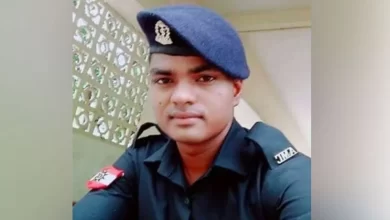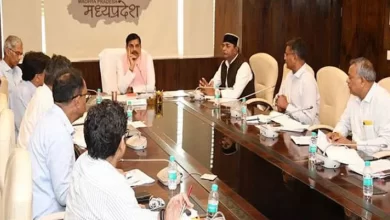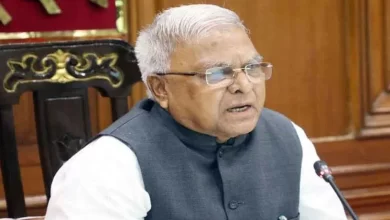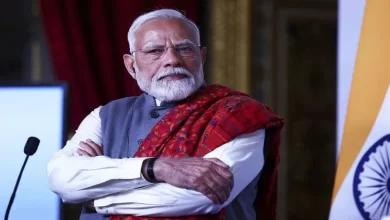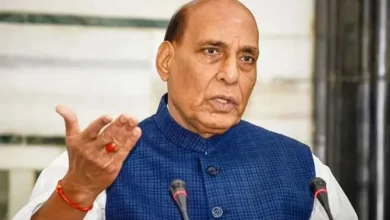Some people purposely spread wrong info about China issue for politics: Jaishankar
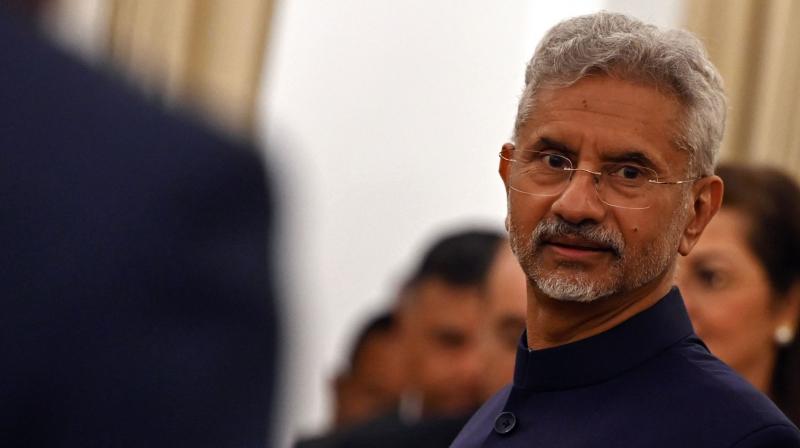

External Affairs Minister S Jaishankar (Sajjad HUSSAIN / AFP)
Pune: External Affairs Minister S Jaishankar has said some people deliberately spread wrong news about the China issue, knowing it is not true, for politics and by talking about some land which was taken by China in 1962, they give the impression this happened recently.
Jaishankar made the remarks, viewed as a dig at Congress leader Rahul Gandhi, on Saturday while interacting with the audience in Pune in a question-answer session during the launch of ‘Bharat Marg’, the Marathi translation of his book ‘The India Way’.
He also said the Indus Water Treaty (IWT) is a technical matter and Indus commissioners of both countries will talk to each other on this issue.
Queried about some people or leaders from political parties lacking confidence in India while speaking about China (military stand-off), he said there are some people in the Opposition who have such thinking which he finds difficult to understand.
He, however, said sometimes such people spread wrong news or information about China on purpose.
“If you want to ask why they have no confidence, why are they misleading people, why they spread the wrong khabar (news) about China? How can I answer these questions? Because I know they are also doing politics. Sometimes they deliberately spread such news that they know is not true,” Jaishankar said.
“Sometimes, they talk about some land, which was taken by China in 1962. But they will not tell you the truth. They will give you the impression that this thing happened yesterday,” he said without taking names.
Congress leader Rahul Gandhi had in September last year said Prime Minister Narendra Modi has given “100 square kilometres of Indian territory” to China “without a fight,” and asked the government how it will be retrieved.
Jaishankar also said sometimes some people say there is “soch me kami” (lack of understanding) in him but in that case, he will approach the military leadership, Army, or Intelligence.
“I will not call the Chinese ambassador and seek information,” he said.
Notably, in 2017, when India and China were locked in a standoff on the border area abutting Bhutan, the Congress said Rahul Gandhi had met the ambassadors of the two neighbouring countries.
Jaishankar further said China is India’s only neighbour which is a global power and may become a superpower in the years to come.
On India’s view regarding current developments in Pakistan and what would be the implications of India’s decisions regarding the IWT, Jaishankar said it would not be appropriate for him to comment in public about the happenings in that country.
“In this (Indus Water) treaty, there are commissioners from both countries (India and Pakistan). It is a technical matter and Indus commissioners will talk to each other and after that, we can see what would be the next step,” he said.
The Union minister’s remarks came against the backdrop of India, according to sources, issuing a notice to Pakistan for the first time, seeking a review and modification of the IWT, in view of Islamabad’s “intransigence” to comply with the dispute redressal mechanism of the pact that was signed more than six decades ago for matters relating to cross-border rivers.
Responding to a query about the failure of a rogue nation (read Pakistan) which is a nuclear power and also an unfortunate neighbour, Jaishankar said, “Like Pandavas could not choose their relatives, India also cannot choose its neighbours”.
He also said counties in the south and the developing world are feeling the pain and India must stand for them while most of the developed nations are looking only at their concerns.
Jaishankar said that is why Prime Minister (Narendra Modi) has decided that we (India) must take this responsibility.
The EAM said his book aimed to get people to associate with the nation’s foreign policy and not just listen to the “mandarins” (a term generally used for powerful bureaucrats).
He also spoke on China and the challenges the country faces with the ambitious northern neighbour as well as India’s ties with Japan and its role in the Indo-Pacific.
“There are eight chapters (in the book). I wanted people to be associated with (the country’s) foreign policy. I want to involve people from other states as well, not just Delhi. I have written this book in simple language and it is an easy read,” he said.
He said China is India’s only neighbour which is a global power and may become a superpower in the years to come.
“It is obvious there are challenges when we have such a neighbour. How to manage China is one chapter in my book. I have also written about how Japan will benefit us. After Partition, the nation faced limits but now our influence is right up to the Pacific Ocean,” he said.
Jaishankar also touched on the topic of terrorism, saying no nation has suffered from the menace as much as India due to the “neighbour we have”, an apparent reference to Pakistan.
Underlining India’s robust stand against terrorism now, he cited the surgical strikes after attacks in Pulwama and Uri and called them “decisive action”.

